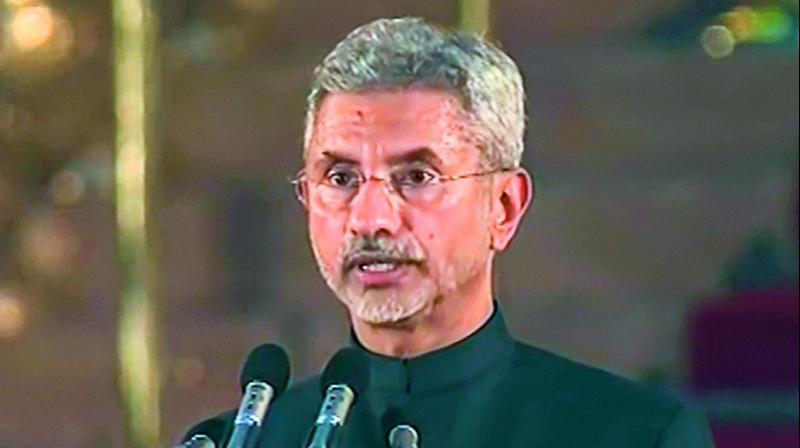Jaishankar, in Beijing, is forthright on Kashmir

The meeting of external affairs minister S. Jaishankar with his Chinese counterpart Wang Yi in Beijing on Monday gave the impression of being another business day for the minister. His travel plans had been made before the critical constitutional changes made in respect of Jammu and Kashmir recently, and had several items on the agenda. Mr Jaishankar apparently made no direct reference to Kashmir. This is just as well. No matter how questionable the government's move on Kashmir — and it could have long-term implications that could influence the regional dynamics, besides having negative domestic consequences in Kashmir itself — it would not do for neighbours like China or Pakistan to act self-righteous.
As a world power, China has hardly lived up to its responsibilities regarding international or regional security, and also human rights. Mr Jaishankar as good as told Mr Wang Yi not to interfere in India’s internal matters as New Delhi didn’t comment on goings-on within China (although there is much to say). In contrast to the Jaishankar visit, Pakistan foreign minister Shah Mehmood Qureshi landed in Beijing as a supplicant on Friday to urge the Chinese leadership to back Islamabad in taking the Kashmir matter to the UN Security Council. Will China support Islamabad? The jury is out on this, though the stand taken by Russia, a veto-wielding permanent member of the UNSC, that the Kashmir issue is “internal” to India, can’t enthuse China or Pakistan.
A useful thing for India to keep in mind is that Beijing is likely to cooperate very closely with Islamabad on the Afghan conundrum, which appears to be reaching a crucial stage. Washington too is expected to be solicitous of Pakistan. New Delhi must be diplomatically alert that these likely developments do not negatively impact India on Kashmir — in respect of which its actions have been reckless and unmindful of the democratic rights of the people of J&K - although Russia's stance provides some comfort.
In the aftermath of the changes in Kashmir effected by India recently, China had carelessly — no doubt in order to appease Pakistan, its “all-weather friend” — stated that making Ladakh a Union Territory affected its sovereignty. Mr Jaishankar politely informed the Chinese minister that this was balderdash as India's external boundaries had not changed, its position on the Line of Actual Control (LAC) with China remained unaltered, and that India was making no new territorial claims.
Being forthright in diplomacy is a good habit that India should inculcate in dealing with world powers. It was good to see the minister tell the Chinese side that the future of bilateral ties between the neighbours will depend on their being sensitive to each other’s “core” concerns.

